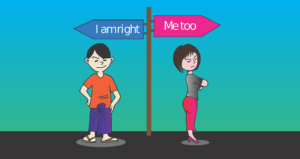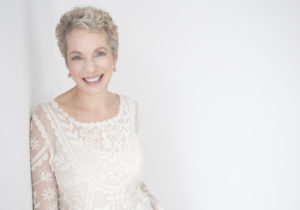Loving Others
Since previously writing a blog about Loving Ourselves, it seemed only fitting to write about Loving Others. Over the years since I began this work in 1998, I’ve helped many clients overcome challenges in their relationships through private consultations.
Our Childhood
I believe that in order for us to grow, heal and move forward, we need to look back to our past. In our childhood, we constantly observed relationships. We watched what other people did. We saw the responses (and reactions) of others in a variety of situations and circumstances. We learned what to do (and what not to do) in order to be loved, accepted and acknowledged. All of this information was collected unconsciously, and this became our map that helped us navigate the ‘terrain’ of our family, and later on our relationships. This map helped us to stay out of trouble (or sometimes get into it if we went against it) – ultimately the map attempted to keep us safe or secure.
 Now
Now
Fast forward to today, and more than likely, we find ourselves in some form of relationship (or we were previously in a relationship), whether that be with a spouse, partner, family/extended families, work colleagues, a boss or even a pet! It’s important to realize that very single person – even our pet – holds their own map of relationships and life.
Different Maps
When partners/spouses/colleagues/bosses follow our map, have the same ideas, ways and conditioning then it feels good to us, we feel safe, everything flows smoothly. There are little or no complaints.
However when our maps differ, we tend to have disagreements. When  we argue, we rarely take the time to discover what is on the other persons’ map. We generally spend all our effort and energy defending our map, trying our best to convince the other person that our map is ‘right’. We never take a step back to look at their map. If we did, we’d discover that – surprisingly – we both want the same thing.
we argue, we rarely take the time to discover what is on the other persons’ map. We generally spend all our effort and energy defending our map, trying our best to convince the other person that our map is ‘right’. We never take a step back to look at their map. If we did, we’d discover that – surprisingly – we both want the same thing.
Here’s a basic example: if you want an orange and I want a banana, then we are not going to fight. However, if you want an orange and I want an orange then it’s likely that we’ll fight over it. When we breathe and take a step back, it gives us time and space to discover that both want the orange and now we can work together to find the best way to get it.
Quote
“Change only happens when we ACT rather than RE-act”
Loving Others: Outdated Maps
 So in any disagreement it’s helpful to stay curious to what is on the other persons’ map. We then have a few opportunities:
So in any disagreement it’s helpful to stay curious to what is on the other persons’ map. We then have a few opportunities:
- we might uncover a new/different route;
- we will establish who has the most up-to-date map;
- we may even have the humility to accept and acknowledge that in fact, the other persons’ map is better than ours; or
- we may decide to create a brand new map and ditch our old one
As we do this, we update our truth and map – with new information, observations and insights.
Loving Others: Navigating to the Same Place
If we never update our map then it’s probable that we will end up going ’round in circles! For example: we might keep being attracted to similar people over and over again; alternatively we could find ourselves in similar situations throughout our lives e.g. we constantly feel lonely, abandoned, a victim, or rejected etc. When we realize that we keep ending up in the same place, it’s time to update our map. Sometimes we can do this ourselves, but if it’s a longstanding challenge we might need a little help.
Patience
If we are fearful of change and don’t update our map things will escalate. The arguing gets worse and more intense. Over time, we become frustrated, disillusioned, lonely and our patience diminishes.
Imagine an elastic band, with each argument, our patience (and the elastic band) stretches… another argument and it stretches some more. We have yet another argument and our patience is stretched further. Then over something quite minor, we argue and our patience snaps – then just like an elastic band it is broken. Once this happens, it is very difficult to repair (the elastic band and) the relationship.
Loving Others: Acceptance
Loving others is about understanding and accepting them – unconditionally. To do that though, we have to drop our expectations and the fairy-tale that runs unchecked in our minds.
With maturity we can accept that, whoever we are in relationship with, is not perfect. We can to accept that we – just as they – have faults. As we love ourselves unconditionally we open the door to our hearts. Then we can love others for who they really and truly are (instead of how we’d expect/like/need/want them to be).
Quote
“Your life is a mirror of relationships.
Every person in your life is a mirror of you.
Every love in your life is a reflection of your ability to love.
In essence, your life only has meaning in proportion to the love you will allow in your own heart”
Deepak Chopra
Next time I’ll share more in-depth information about a wonderful resource that has tremendously helped me (and many of my clients) in relationships.
Contact Us
 If you’d like to explore any of the themes raised in this blog regarding loving others then feel free to contact us to book your private, confidential consultation. Appointments can also be booked online. If you don’t live in Ireland, we can work together online via Skype and Zoom from the comfort of your office/home. Call us on: (Ireland) 0871492338 or (UK) 07857369619 to chat.
If you’d like to explore any of the themes raised in this blog regarding loving others then feel free to contact us to book your private, confidential consultation. Appointments can also be booked online. If you don’t live in Ireland, we can work together online via Skype and Zoom from the comfort of your office/home. Call us on: (Ireland) 0871492338 or (UK) 07857369619 to chat.
Alternatively join us for our potent Weekend Retreats, if you’d like to delve deeper and uncover/discover more about yourself and what makes others tick!

